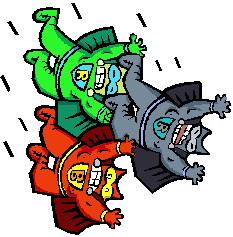The Young Child Who Stutters: Feeling Good About Talking
 |
About the presenter: Patty Walton received her Master of Arts in Speech Pathology from the University of Colorado at Boulder in 1985. She is the co-owner of the Center for Stuttering Therapy in Denver, and exclusively with adults and children who stutter. She teaches the graduate fluency class at the University of Northern Colorado in Greeley and the under-graduate class at Metropolitan State College of Denver. She is the co-author of Fun with Fluency and has just finished its school age counterpart, yet to be titled. She is a Board Recognized Fluency Specialist. |
The Young Child Who Stutters: Feeling Good About Talking
by Patty A. Walton
from Colorado, USA
Direct treatment of early childhood stuttering provides the child with tools to help them speak more fluently (easy speech, smooth speech or stretchy talk) and in some cases stutter more easily (bouncy talk). While these tools are the cornerstone of early treatment, we should also consider ways in which we can help the child feel better about talking, thereby minimizing the development of negativity. Of course, verbal praise such as "You said that so easily" or "You are so good at talking!" is helpful in building positive thoughts about communicating. But we can go beyond verbal praise to help the child feel special, as well as empowered over their stuttering, and positively impact therapy success. In this clinical nugget, I would like to share with you three ways I help young children feel good about talking.
One of my favorite ways to encourage such empowerment is to talk to kids about their "speech muscle". I ask them to flex their arms and I feel their muscles, then I make a big deal about how strong their speech muscle is getting. Throughout therapy, I refer to the child's speech muscle in many different contexts, such as, "Show me your speech muscle", "Where is your speech muscle", "Your speech muscle is SO big!", or "Look at how strong your speech muscle has gotten!" Children are so proud to show mommy and daddy their speech muscle when their therapy session is done!

Next, when young children use their speech tools in therapy, (easy talk or bouncy talk), they are Speech Rangers. We have a special speech ranger high five and they know that no one else in their family can be a speech ranger but them! They liken being a speech ranger to Spiderman and other super heroes, sometimes insisting that nobody can know they have "special talking powers"!

And finally, children love to be told that they are doing better easy speech than me. I often tell children quietly, "Don't do better easy speech (or bouncy speech) than me, mommy is listening and what will she think? I am the speech teacher!" Or I may tell the child "Today is my day to beat your easy talk, you never let me do it the best" or "You can't be the speech teacher, I am the speech teacher. No fair!"

When children feel better about talking they are less likely to develop negative attitudes and feelings which often play a role in the progression of the disorder. In our therapy we should strive for this, because all children who stutter deserve to feel good about talking.
Pictures are from Microsoft clip art
SUBMITTED: August 31, 2008

